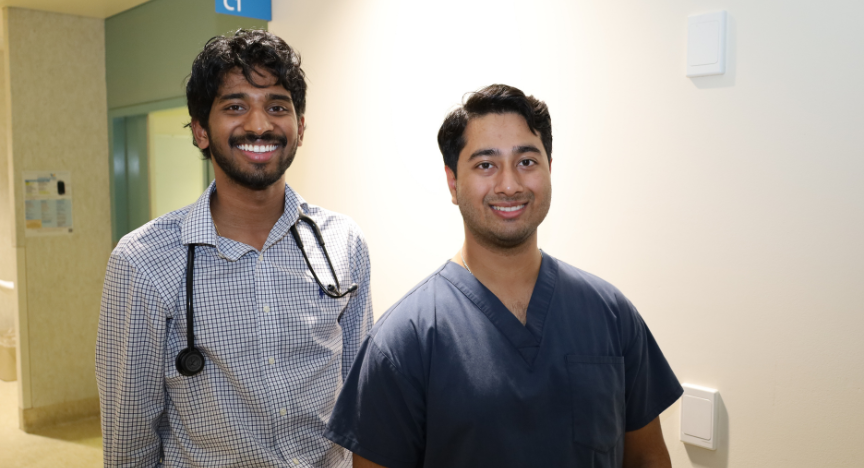
Redland Hospital’s stroke team has introduced new measures to improve care for stroke patients, focusing on key areas like managing fever, blood sugar levels, and swallowing difficulties after a stroke.
The Yellow Team, based in Canaipa Ward, operates as the hospital’s dedicated stroke response unit, working closely with the Emergency Department (ED) to provide immediate care for patients presenting with stroke symptoms.
The team, which includes doctors, nurses, and allied health professionals, is instrumental in managing these urgent cases.
Medical Registrar Johayer Abtahi outlined the important role of the team in the crucial first hours of stroke care.
“The team see all the new patients who come in with concerns for stroke or neurological symptoms.
“We attend to the stroke codes, when an emergency buzzer is activated in the Emergency Department for patients who have had a stroke or who we’re worried about,” Dr Abtahi said.
“We organise imaging scans and monitor them, from their heart rate, blood sugars, blood pressure, to make sure that they're safe from a stroke perspective and we initiate treatment,” he said.
Clinical Nurse and Stroke Team Coordinator Emma Butler said the team’s current focus was on improving patient outcomes through collaboration with the Australian Stroke Clinical Registry (AuSCR).
"We're targeting our medical treatment to improve the long-term recovery of stroke patients," Emma said.
"High fevers and high blood sugar levels can worsen brain injuries, and swallowing difficulties can lead to complications if not correctly assessed."
The team has adopted the FESS (fever, blood sugar, and swallowing) protocols, which involve monitoring temperatures above 37.5 degrees, blood sugars, and ensuring that a swallow screen is completed within four hours.
"Our focus this year is on these critical outcomes, ensuring that we provide the best possible care for our patients."